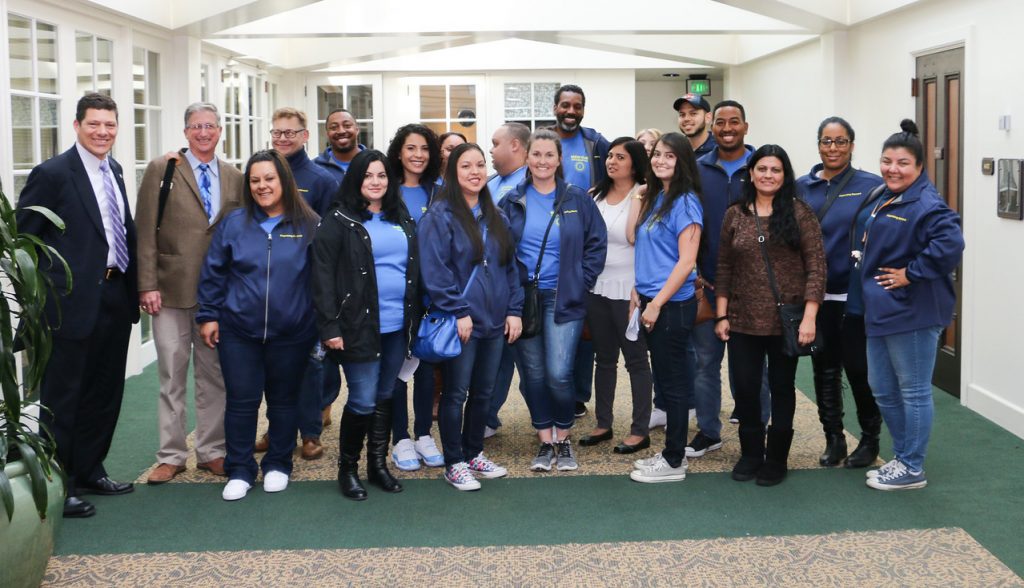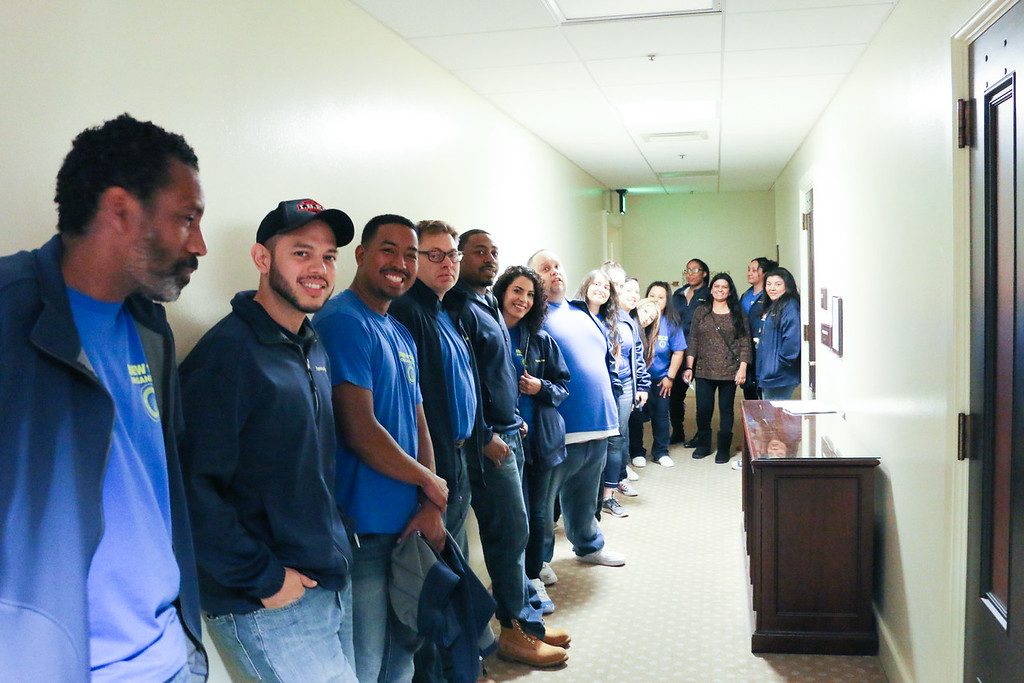
The team from Local 1245 spoke out in opposition to AB 1030
IBEW 1245, together with the Coalition of California Utility Employees and California State Association of Electrical Workers, spoke out in firm opposition to Assembly Bill 1030 (Ting) when it came up in the Assembly Utilities and Energy Committee on April 26, 2017.
A dynamic group of 18 Organizing Stewards, along with Local 1245 staffers, as well as representatives from other IBEW locals in southern California, attended the hearing to express opposition to the bill. During the public comment portion of the hearing, members clearly articulated why the union is opposed to AB 1030, and the message came through loud and clear, as the bill failed to garner the eight votes it needed to get out of committee.
AB 1030 would have required the CPUC to establish tariffs and rules to massively subsidize residential and commercial customers installing energy storage systems. Local 1245 opposed AB 1030 for four specific reasons:
- UNNECESSARY: Energy Storage is being built and installed in California as we speak at a rate faster than any state in the U.S.: This bill is unnecessary.
- STORAGE URGENTLY NEEDED FOR THE GRID: More Energy Storage is needed for grid applications only as currently the amount of renewable energy generated is often being “curtailed” or literally given to other states during the day because of over-generation. AB 1030 would take vital funding and resources away from this need by supporting the opposite and give funding to non-grid solutions which comprise less than 15% of all renewable power generated in California in 2015.
- UNFAIR TO LOWER INCOME CUSTOMERS: This bill will grant new, additional incentives/subsidies to the very same electric customers who have already enjoyed subsidized electricity under the California Solar Initiative and the Net Energy Metering (NEM) programs administered by the CPUC. These customers have received so much in subsidies, principally via the NEM, that electricity costs are being shifted from these wealthier customers or Solar Company owned installations that funding for low income residential programs will begin to be reduced to pay for existing subsidies. The cost of these subsidies are borne by everyone else who doesn’t have rooftop solar.
- THREATENS RELIABILITY OF ELECTRIC SERVICE: The bill singles out one emerging technology — and the non-regulated companies that are developing this technology — and promotes them to the head of line. At this time, small-scale battery storage technology will not store sufficient energy to effectively manage the current over-generation of renewable energy, nor is there any way to ensure that the companies developing the energy storage technology and selling it into the marketplace will assist in leveling out the “duck curve” and ensuring that all renewable energy generated today can be stored and used tomorrow. In fact, the opposite is true. These companies will sell their products, with a flourish of green promises, into the marketplace to customers who will use the state-sponsored subsidy to buy them, and then disappear to count their profits.
- PREMATURE: The CPUC and the CEC are currently in the process of developing a long-term Integrated Resource Planning process that will determine the proper balance of all energy resources to ensure the optimum amount of renewable energy resources while protecting customers and reliability. Any action to create incentives for any possible solution before the planning process is complete could lead to electricity customer money being spent unwisely, or could even create incentives that hurt customers and the grid.

In the halls of the Capitol, waiting for the hearing to begin
Photos by Steve Marcotte